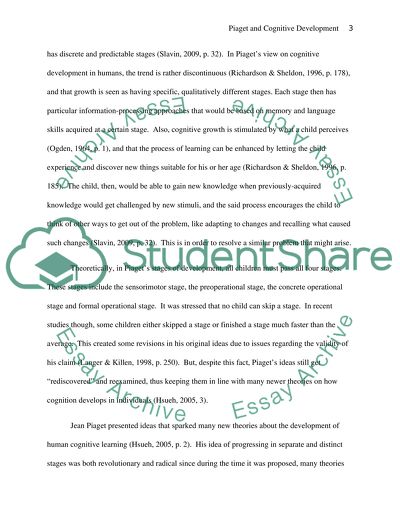How Did Piaget View Cognitive Development Essay Example | Topics and Well Written Essays - 500 words. Retrieved from https://studentshare.org/education/1566951-how-did-piaget-view-cognitive-development
How Did Piaget View Cognitive Development Essay Example | Topics and Well Written Essays - 500 Words. https://studentshare.org/education/1566951-how-did-piaget-view-cognitive-development.


